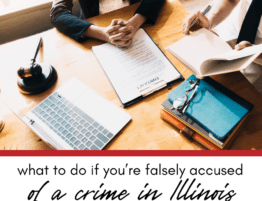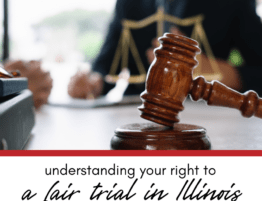
We’ve all heard the horror stories about police interrogations; we’ve seen them play “Good Cop, Bad Cop” on television, too. But police interrogators often really do use harsh tactics… sometimes harsh enough to draw out a false confession. If this has happened to you, the first thing you need to do is call a Rolling Meadows criminal defense lawyer. Don’t say anything to investigators other than, “I’d like to speak to my attorney.”
False Confessions Defined
When interrogators put you under extreme pressure, threaten you or coerce you, you may be tempted to say something that isn’t true just to get the questioning to stop. Additionally, if you’re under the influence of drugs or alcohol, you may not realize what you’re saying until it’s too late. Simply put, a false confession is an innocent person taking responsibility for a crime.
Sometimes people who make false confessions are afraid that police will become violent; others are terrified by threats like “You’ll go to prison for life if you don’t admit it!” Unfortunately, people who are confused about the situation they’re in or who are unable to understand the language often give false confessions as well.
What to Do if You Have Given a False Confession
Once you’ve said something incriminating, you can’t take it back – even if it’s not true. That’s why it’s so important to call your attorney and tell him the entire story, from start to finish. He can tell you what’s going to happen next and how you two will handle it together. He may even be able to prove that you were incapable of telling the truth during your interrogation. Either way, he’ll be there to protect your rights and ensure that police know they can’t take advantage of you when you’re at your most vulnerable.
Take care, and remember: don’t say anything to police (true or not) without consulting your attorney first.










Write a comment: